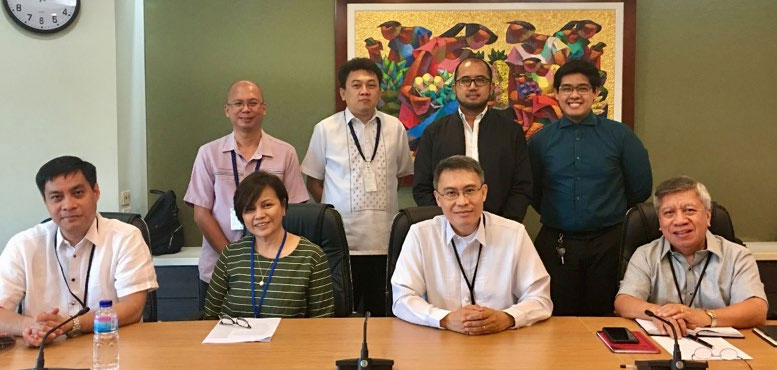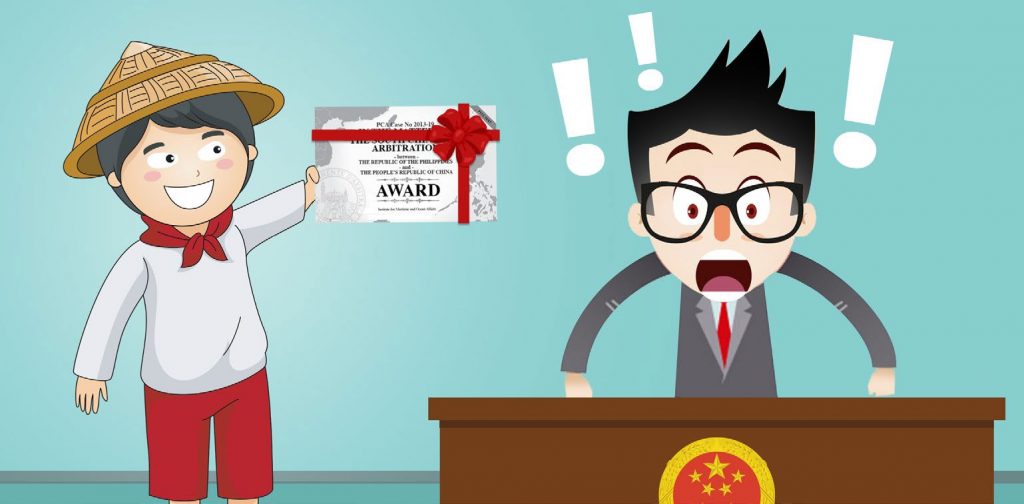 PDRC met with IPOPhl officials last May 14, 2019 to renew their Memorandum of Agreement (MOA) for another three years. Targeted to be signed in early June 2019, the new MOA embodies the desire of PDRC and IPOPhl to continue to cooperate and further strengthen their capacities for an effective resolution of intellectual property disputes.
PDRC met with IPOPhl officials last May 14, 2019 to renew their Memorandum of Agreement (MOA) for another three years. Targeted to be signed in early June 2019, the new MOA embodies the desire of PDRC and IPOPhl to continue to cooperate and further strengthen their capacities for an effective resolution of intellectual property disputes.
The new MOA provides, among others, the creation of a Joint Technical Working Group (JTWG) composed of representatives from IPOPHL and PDRC. The JTWG will suggest new modes of alternative dispute resolution in resolving intellectual property disputes, review and recommend amendments to the IPOPHL-PDRC Arbitration Rules to simplify the procedure, avoid technicalities and delays, ensure the independence of arbitrators and the fair and equal treatment of parties, minimize costs, and make the enforcement of awards easy.
The JTWG will also propose and implement guidelines for training, accreditation and continuing educati`on of accredited arbitrators, as well as the conduct of public information activities to promote arbitration.
IPOPhl officials present during the meeting were Atty. Nathaniel Arevalo, Director, Bureau of Legal Affairs; Dr. Frederick Romero, Consultant, Office of the Director General; Engr. Luwin Dela Concha, IPO ADR Department; and Atty. Daniel Hofilena, IP Academy.
PDRC was represented by Atty. Salvador Panga, Jr., Vice President for External Affairs; Atty. Ray Anthony Pinoy and Atty. Teresa Paz G. Pascual, PDRC IP resource persons; and Francisco Pabilla, Jr., Assistant Secretary General.
 Arbitral Awards and the Apostille Convention
Arbitral Awards and the Apostille Convention
By Jose Maria B. Buenagua
In Part I, the author discussed some of the formal requirements before an arbitral award may be recognized and enforced abroad. Part II discusses how the Apostille Convention simplified the requirement of consular authentication.
Grounds for refusing recognition and enforcement
Article V of the Convention also lists the grounds to refuse the enforcement of an arbitral award:
- Absence of a valid arbitration agreement
- Lack of fair opportunity to be heard
- The award or a non-severable part of it exceeds the submission to arbitration
- Improper composition of the arbitral tribunal
- The award is not binding
- The subject matter is not arbitrable
- Public policy of the forum
Procedure Pre-Apostille Convention
Arbitral awards issued in the Philippines may also be enforced in countries not signatories to the Convention. According to William H. Park in his article, “Non-Signatories and International Contracts: An Arbitrator’s Dilemma,” In determining whether a non-signatory should be joined to international proceedings, arbitrators usually “look to theories related to implied consent and lack of corporate personality.”
In the perspective of the New York Convention however, even if a state is non-party, as long as it is not affected by any infirmity mentioned in Article V of the Convention, there is no ground to deny its enforcement. To enforce this kind of arbitral award then, it should include the following:
- A certification by the tribunal or the arbitral institution that the final award was rendered by the constituted tribunal in the case
- The parties were duly notified of the arbitral award
- The attached copy of the award is a true copy of the arbitral award on file with the tribunal or with the arbitral institution
In case of ad hoc arbitration, the certification will be issued by the tribunal or, if so authorized by the tribunal, by the chairman or presiding arbitrator alone. This certification must be affirmed before a notary public accredited by the Department of Foreign Affairs (DFA) for apostille purposes, after which the arbitral award will have to undergo consular authentication.
Consular authentication is done by having the notarized certification submitted to the Clerk of Court who issued the notarial commission, who will certify to the authenticity of the notarial seal and signature. The Clerk’s certification will be certified by the Supreme Court as authentic.
Thereafter, the Supreme court certification will be submitted to the Office of the President for indorsement to the Secretary of Foreign Affairs (SFA), who will certify to the authenticity of the Supreme Court certification. Finally, the SFA certification will be presented for legalization to the consular offices of the country where the arbitral award will be enforced. Undeniably, this is a tediously long and expensive process.
Apostille Convention
On May 14, 2019, The Hague Apostille Convention or simply the Apostille Convention will take effect in the Philippines. Article IV of the Apostille Convention states that “the only formality that may be required in order to certify the authenticity of the signature, the capacity in which the person signing the document has acted and, where appropriate, the identity of the seal or stamp which it bears, is the addition of the certificate described in Article 4 (the allonge), issued by the competent authority of the State from which the document emanates.”
The benefit of an Apostille Convention is that the Apostillized Philippine documents to be used in Apostille state parties will no longer need another authentication or legalization step by foreign embassies in the Philippines. In other words, the Apostille Convention made the authentication process simpler and shorter.
Under the Apostille Convention, only the notarized certification of the tribunal or the arbitral institution shall be presented to the DFA, who will issue an apostille. The apostille shall have the same effect as a consular authentication in countries who are signatories to the Apostille Convention.
This principle is affirmed in Article II of the Apostille Convention, which states that “each Contracting State shall exempt from legalisation documents to which the present Convention applies and which have to be produced in its territory.”
In certain states like Germany, Austria, Finland, Greece and non- Apostille countries, however, the arbitral award will still have to undergo consular authentication to be entitled to recognition and enforcement
If this trend of making arbitration more accessible and efficient continues, then truly arbitration may have already beaten litigation.
